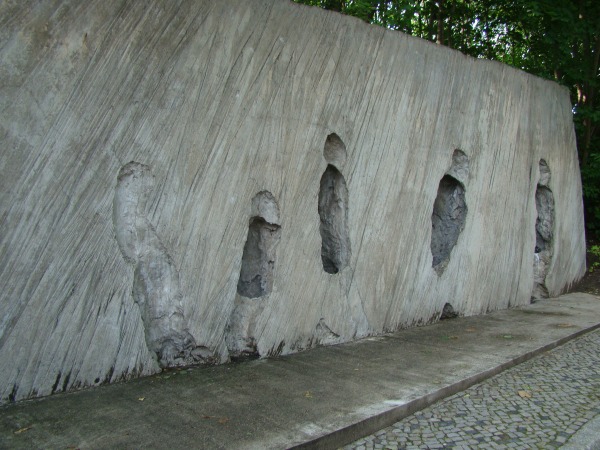The idea for my upcoming online course – Please – No More Poetry – began with a question that has occupied my thoughts for many years now: what is the relationship between poetry and trauma?
In a conversation with my doctoral supervisor – a wise scholar and wonderful poet – I described my fascination with the amount of poetry born from and concerned with trauma. In response he said, “Yes. Everybody seems to have a 9/11 poem.” I, who am also guilty of writing a poem after the terrorist attacks on September 11, 2001, come back to this thought often. Why is poetry the form so many people – poets and non-poets alike – turn to when trying to articulate a historical crisis? And what are the contours of this poetry: its conflicts, struggles, questions, silences?
Are trauma and woundedness the/a way through which we connect with one other?
In the summer of 2013 I was part of a group of inter-cultural future and current educators who traveled to sites of Holocaust memory in Germany and Poland. Somewhere between visiting former concentration camps, cemeteries, museums, and memorials, I found myself traumatized by experiences that were and were not mine; while I was occupying and being affected by these places in the present, their stories were not my own. And then I found myself writing poetry. Writing in order to cope, understand, feel, communicate, reach for and through the experiences I was having.

Karol Broniatowski’s hollowed out figures at the entrance to the memorial at Track 17, a major deportation point in Berlin during the Holocaust
Marianne Hirsch coined the term ‘postmemory’ to refer to children of Holocaust survivors who absorb the traumatic memories of their parents into their own memories, despite never having experienced the horrors of the Holocaust themselves. Since this early definition, postmemory has been employed to describe transmission of memory across multiple generations (second, third, etc.), across various traumatic events (beyond the Holocaust), and across non-familial contemporary witnesses (the postwar generation). Secondary trauma – like the experience I had in Germany and Poland – and postmemory – as Marianne Hirsch describes – are two conduits through which we can approach trauma, conduits which are largely inadvertent. But how else can we approach someone else’s trauma? Can we, for example, deliberately enter another’s trauma through poetry and then – and this is critical – be able to find our way back out? Can we approach without attempting to enter, and if so, where do we draw our boundaries?
Despite my course’s title, we will – fervently and frequently – be writing poetry. We will trace trauma by reading and writing poetry in response to a selection of international, historical, collective traumatic events over the last hundred years. In our time together we will attempt to understand why and how creation repeatedly surfaces as a response to devastation. Additionally, we will examine the dangerous possibilities of poetry in response to trauma, such as the appropriation of another’s experiences. It is my hope that we will also offer tools and pathways to anyone who carries personal traumas that they wish to articulate through poetry. There will be space for these traumas too, though they are by no means a requisite.
‘There are atomic openings in my chest / to hold the wounded,’ writes poet Dionne Brand in ‘Inventory’, an elegy that attempts to document the global socio-political chaos at the turn of this century. Through atomic openings – the simultaneously volatile and inviting spaces of the cracked heart – this course, too, will seek ways ‘to hold the wounded’.
Seek to approach the traumatic through your own writing on Anna Veprinska’s online course Please – No More Poetry: Postmemory & Historical Trauma. Call 0207 582 1679 or book online here.
Add your Reply
You must be logged in to post a comment.